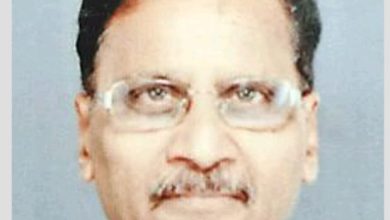Constitutional Provisions for Learning, Equity & Social Judgement

Prof. Sunil Goyal
The Indian Constitution enacted in 1949 and adopted in 1950 enshrines equity and societal judgment as the cardinal principles of the Indian democratic system. The unique feature of the Indian Constitution is that while it upholds the principle of equity before law, it provides for affirmative discriminatory actions to uplift the social, economic and learning well being of disadvantaged groups. The Constitution recognizes the Scheduled Castes (SCs), Scheduled Tribes (STs) and learning Other Backward Classes (OBCs), Minorities and Women as disadvantaged groups. The ultimate objective of the Constitution Framers was to establish a casteless society within the framework of a welfare state by gradually eliminating caste hierarchy, caste distinction and caste stigma and thus to ensure the dignity of the individual and equity of status among all the citizens of India. The Preamble of the Constitution assures Justice, social, economic and political, as well as Equity of status and of opportunity with a view to promoting among all citizens Fraternity, assuring the dignity of the individual and the unity and integrity of the nation. These ideals are clearly reflected in different clauses of the Constitution. Article 14 guarantees equity before the law and the equal protection of law to all persons. Article 15(1) prohibits discrimination against any citizen on grounds of religion, race, caste or sex. Article 16(1) guarantees equity of opportunity for all citizens in matters relating to employment or appointment to any office under the State.
In order to make the Fundamental Rights referred to above meaningful to the socially disadvantaged people of this country, particularly those who had been badly maltreated and subjugated to social injustices for centuries, the Constitution makers made several provisions in the constitution to raise their level so that they may live with dignity and respect. Article 17 provides for abolition of untouchability, and the enforcement of any disability arising from it was made punishable as an offence according to law.
Article 15(4) was not there initially in the Constitution when it was enacted and was introduced as a first amendment to the Constitution. It enabled the government to make special provisions for the advancement of backward classes including the Scheduled Castes (SCs) and Scheduled Tribes (STs). As per Article 16(4), the Government can make reservations in favour of any backward class of citizens.
Political representation was guaranteed for SCs and STs through the proportionate reservation of seats in all elected legislative bodies from Parliament to Village Councils. Not only that, the Government of India instituted a program of ‘Compensatory discrimination’, an Indian version of affirmative action, which provides for 15% reservation to SCs and 7.5% reservation to STs in all public services as well as in admissions to all public universities and colleges. Article 46 of the Constitution clearly states that the State shall promote with special care the learning and economic interests of the weaker sections of the people, and, in particular, of the SCs and the STs, and shall protect them from social injustice and all forms of exploitation. The 86th Amendment to the Constitution inserting Article 21 A, in 2002, making elementary learning a fundamental right is going to make positive impact on the learning of SCs, STs, OBCs and women.
Besides, the National Policy on Learning (1968) calls for strenuous efforts to correct regional imbalances and inter-group disparities in learning. Reinforcing the 1968 Resolutions, the National Policy on Education and Program of Action (1968/1992) lay emphasis on the removal of disparities and equalization of learning opportunities by attending to the specific needs of those who have been denied equity so far. Both the Policies have dealt with the learning needs of the SCs, STs, Women and Minorities in great detail with a special concern for neglected groups like nomadic tribes and de-notified tribes. Based on the constitutional commitment and policy directives, planned efforts have been made since independence to promote learning development in equitable manner. Consequently, there has been considerable improvement in the learning status of the deprived groups.
(Writer is an Eminent Social Scientist, Dean and Chairman – Board of Studies, Dr. B. R. Ambedkar University of Social Sciences, Dr. Ambedkar Nagar (MHOW), Madhya Pradesh. Can be contact Mobile 9340538466 (Calling), 9425382228 (WhatsApp). Views are personal).






